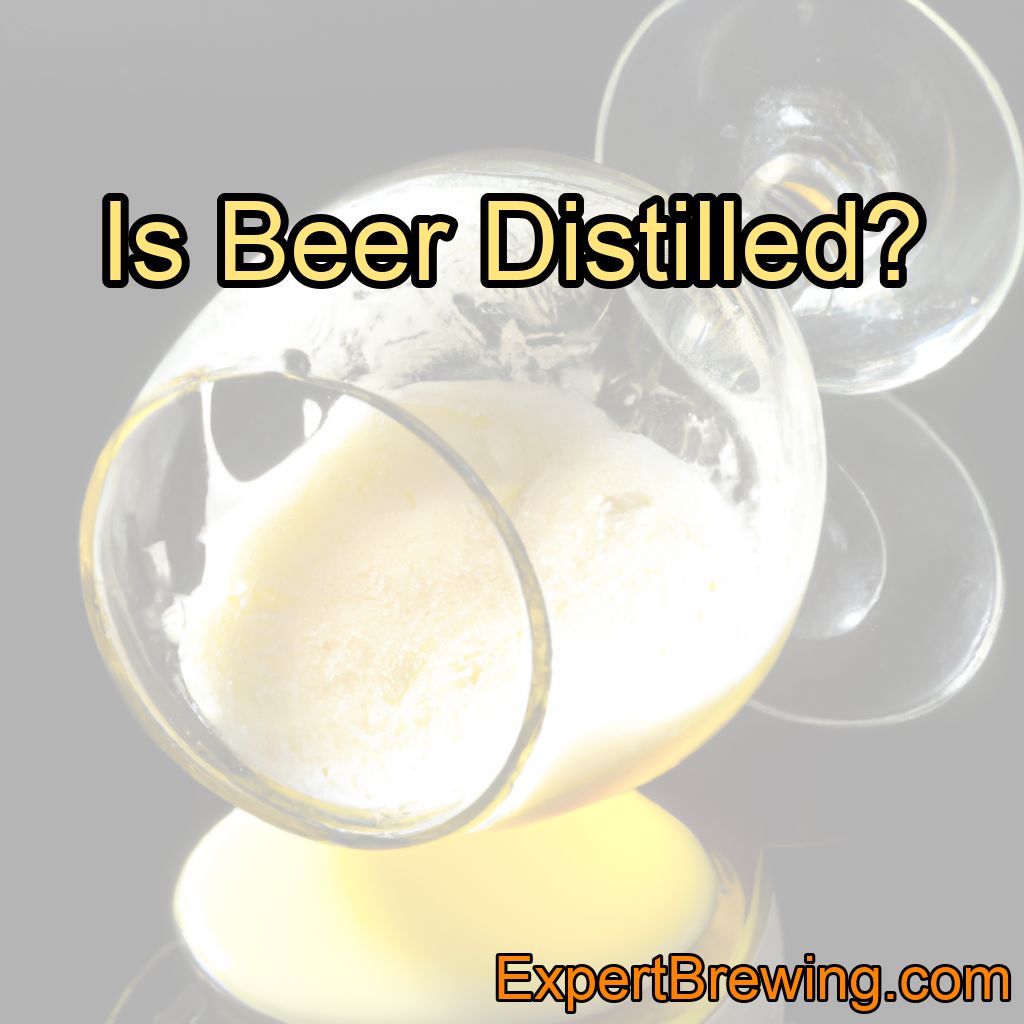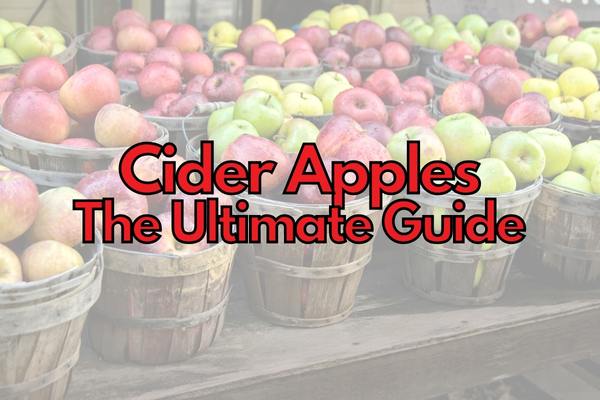No, beer is not distilled. Beer is a fermented alcoholic beverage made from grain, water, hops, and yeast.
Introduction
In the world of alcoholic beverages, there can sometimes be confusion over the differences between types of drinks, particularly when it comes to beer and distilled spirits. As an experienced home brewer, I’ve often been asked the question, “is beer distilled?” The answer is a resounding no, but I understand where the confusion comes from. In this blog post, I will dive into the differences between beer and distilled spirits, the brewing and distilling processes, and the history and culture around these beloved beverages.
The Difference Between Beer and Distilled Spirits
Beer is a fermented beverage made from grain, water, hops, and yeast. It typically has an alcohol content of 3% to 15% by volume. On the other hand, distilled spirits are alcoholic beverages that have gone through a distillation process, which involves heating a fermented liquid, capturing the steam, and then cooling it down to collect the purified liquid. This results in a higher alcohol content, usually between 20% and 50% by volume.
The Brewing Process
The process of making beer begins with the grains, typically malted barley. These grains are first milled to expose the starches and then mixed with hot water in a process called mashing. The heat breaks down the starches into fermentable sugars, which are then rinsed from the grains in a process called lautering. This sweet liquid, called wort, is then boiled with hops to add bitterness and flavor.
After boiling, the wort is cooled and transferred to a fermenter, where yeast is added. The yeast ferments the sugars, producing alcohol and carbon dioxide. This fermentation process typically takes one to two weeks. Finally, the beer is bottled or kegged and allowed to carbonate before it is ready to drink.
Types of Beer
There are two main types of beer: ale and lager. Ales are fermented at warmer temperatures, typically between 60°F and 75°F (15°C and 24°C), using top-fermenting yeast strains. This results in a more complex and fruity flavor profile. Lagers, on the other hand, are fermented at cooler temperatures, between 45°F and 55°F (7°C and 13°C), with bottom-fermenting yeast strains. This leads to a cleaner, crisper taste.
Within these two categories, there are numerous styles of beer, such as stouts, IPAs, pilsners, and more, each with its own unique flavor characteristics.
The Distillation Process
Distillation is a process used to separate and purify liquids, in this case, alcohol. The process begins with a fermented liquid, often called a wash or a mash, which can be made from various sources like grains, fruit, or sugar. This liquid is heated in a still, causing the alcohol to evaporate at a lower temperature than water. The alcohol vapor is then captured and cooled, condensing back into a liquid with a higher alcohol content.
Types of Distilled Spirits
There are many types of distilled spirits, each with its own unique characteristics. Some examples include whiskey, made from grain mash; rum, made from sugarcane or molasses; and vodka, which can be made from a variety of sources, including grains, potatoes, and fruit.
History and Culture of Beer and Distilled Spirits
Alcoholic beverages have played a significant role in human history and culture for thousands of years. The earliest evidence of beer production dates back over 7,000 years, and distilled spirits have been produced for at least 2,000 years.
Throughout history, beer and distilled spirits have been used for various purposes, including religious ceremonies, medicinal purposes, and, of course, socialization and enjoyment. Today, the production and consumption of these beverages continue to be an important part of many cultures around the world.
The Role of Beer in Ancient Civilizations
Beer has been a staple in many ancient civilizations, including Mesopotamia, Egypt, and Rome. In some cases, it was even used as a form of currency or payment for workers. The ancient Sumerians even had a goddess of brewing, Ninkasi, who was praised in a hymn that contained one of the oldest known beer recipes.
Home Brewing and Distilling
With the rise of craft beer and the increasing interest in artisanal spirits, many people have taken up home brewing and distilling as hobbies. While home brewing is legal in most countries, home distilling is often more strictly regulated due to safety concerns and the potential for producing high-proof alcohol.
Getting Started with Home Brewing
If you’re interested in trying your hand at home brewing, there are many resources available on this website to help you get started!
Home brewing kits and ingredient packages can be found at your local homebrew supply store or online. These kits typically include all the necessary equipment and ingredients to brew your first batch of beer.
Conclusion
In conclusion, beer is not distilled. It is a fermented alcoholic beverage made from grain, water, hops, and yeast. Distilled spirits, on the other hand, undergo a distillation process that results in a higher alcohol content. Both beer and distilled spirits have rich histories and play significant roles in cultures around the world. If you’re interested in learning more about brewing or distilling, consider trying your hand at home brewing or visiting a local brewery or distillery for a tour.
10 Facts About Beer and Distilled Spirits:
1. Beer is not distilled; it is a fermented alcoholic beverage made from grain, water, hops, and yeast.
2. Distilled spirits are made by heating a fermented liquid and capturing the purified alcohol vapor.
3. There are two main types of beer: ale and lager.
4. Some examples of distilled spirits include whiskey, rum, and vodka.
5. The earliest evidence of beer production dates back over 7,000 years.
6. Distilled spirits have been produced for at least 2,000 years.
7. Beer has played a significant role in many ancient civilizations, including Mesopotamia, Egypt, and Rome.
8. Home brewing is a popular hobby for those interested in making their own beer.
9. Home distilling is often more strictly regulated due to safety concerns and the potential for producing high-proof alcohol.
10. Both beer and distilled spirits have rich histories and play significant roles in cultures around the world.
FAQs
Is beer alcohol fermentation?
Yes, beer is produced through the process of alcohol fermentation. The yeast converts the sugars in the malted barley into alcohol and carbon dioxide, which gives beer its characteristic flavor and carbonation.
Is alcohol a fermentation?
Yes, alcohol is a product of fermentation, which is a metabolic process that converts sugars into alcohol and carbon dioxide through the action of yeast or bacteria.
What are 3 examples of alcoholic fermentation?
Three examples of alcoholic fermentation are the production of beer, wine, and bread.
What is the difference between fermentation and distilling?
Fermentation is the process of converting sugars into alcohol using yeast or bacteria, while distilling is the process of separating the alcohol from the fermented mixture through evaporation and condensation.
Is beer a distillation or fermentation?
Beer is a fermented beverage, not a distilled one.
Is beer a fermentation?
Yes, beer is a fermented beverage made from grains, typically barley, that undergoes a process of fermentation using yeast.




